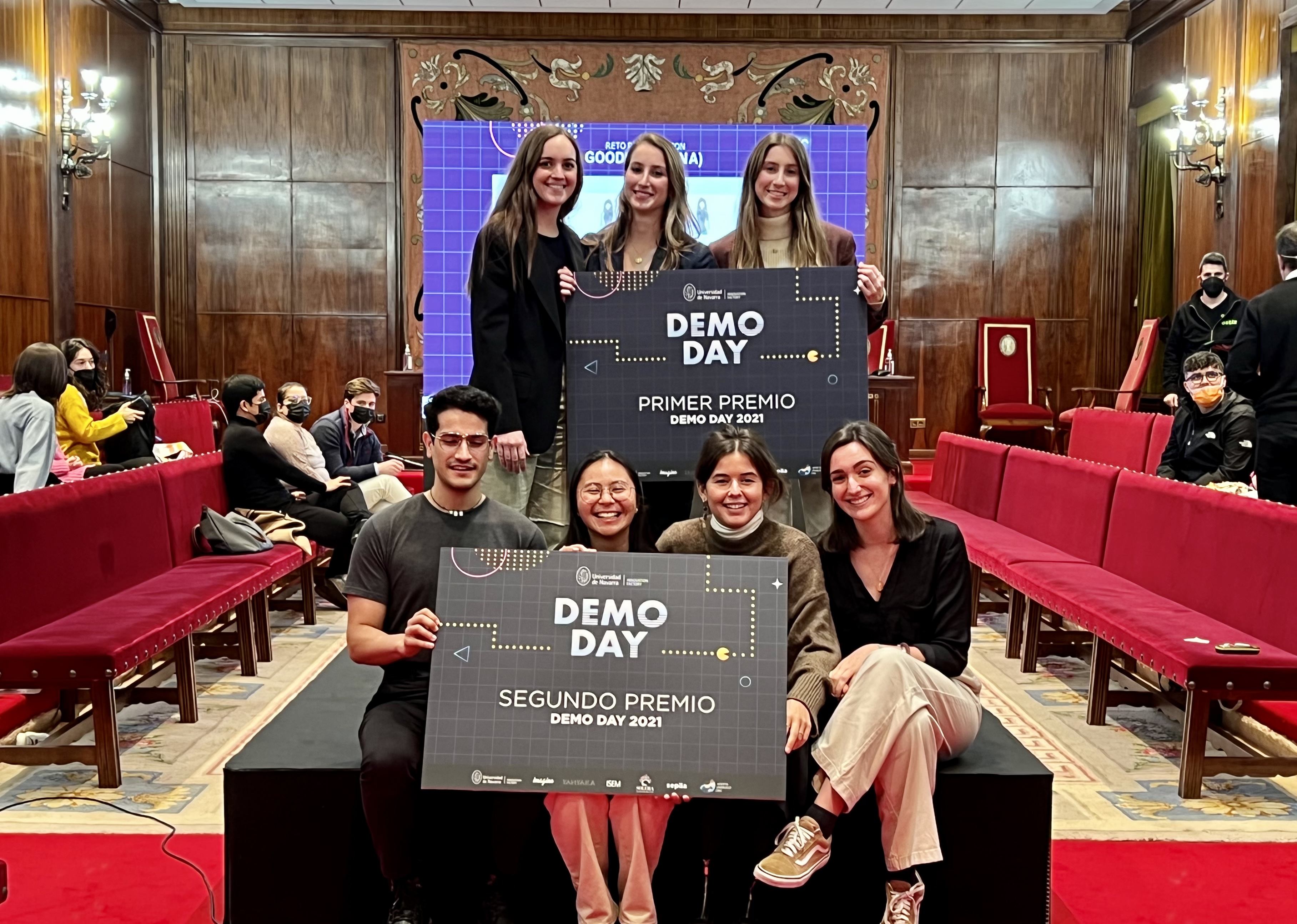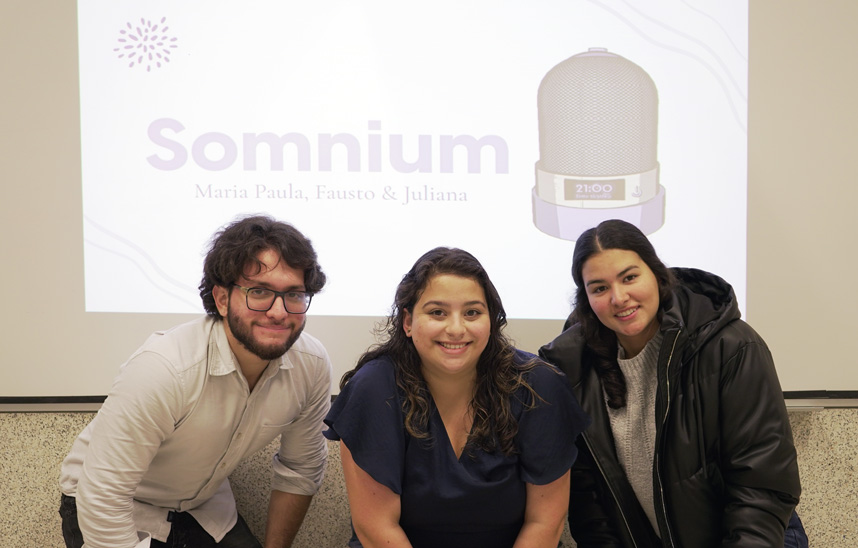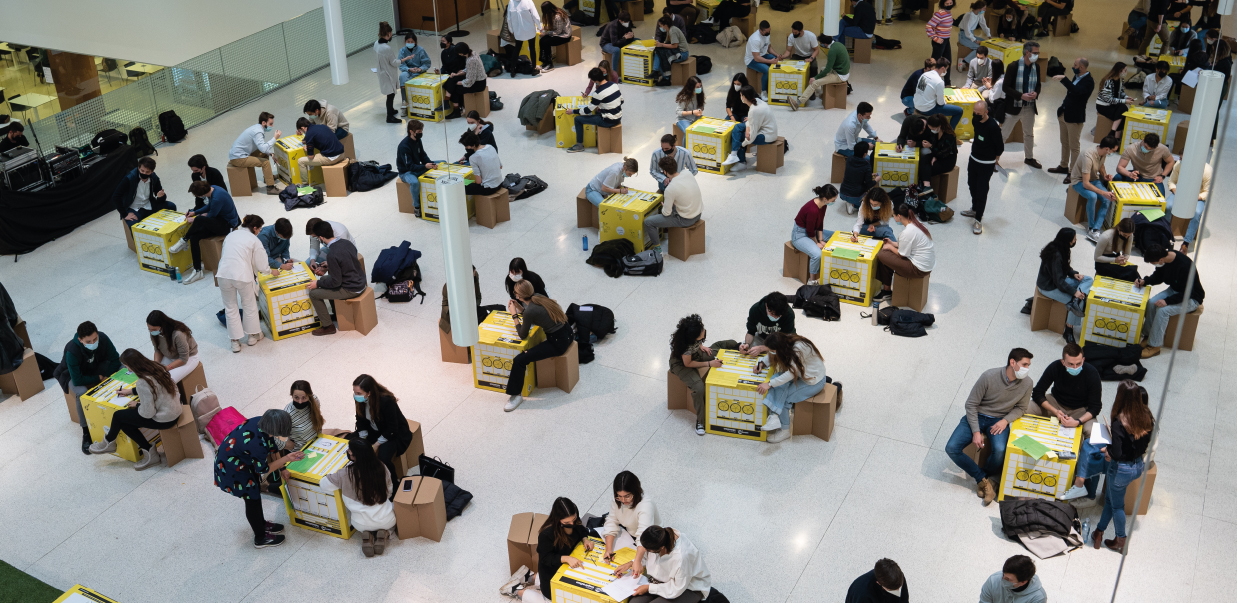IMANA, a clothing brand with magnetic technology, project winner of the Inn BIG Challenge
More than 100 students developed social innovation projects around sustainable fashion and elderly people.

PhotoDavidDoménech/
18 | 11 | 2021
The University of Navarra's innovation competition, the Inn BIG Challengeconcluded after the Demo Day, the workshopfinal where the finalists presented their projects to the jury.
The initiative, organised by Innovation Factorythe Imagine Creativity Center of San Francisco and Tantaka goalpromote the innovative spirit of the students through the developmentof social innovation projects. In this second edition, the students have chosen one of the two challenges selected for this year: projects on sustainable fashion ("Right Fashion") or proposals related to the care, accompaniment or inclusion of the elderly.
During the finals, the audience attended the presentations of six teams: Delta+, Vetus Amica, A Great Transformation, A Tiempo Real, Goodies and R3's D3sign. Three teams for each challenge. The jury, made up of Belén Goñi, director of Innovation Factory; Natalia Couto, director of Tantaka; Santiago Hermida, from the Imagine Creativity Center; and César Martín, Deputy Directorof Strategic Projects at the School of Architecture testwith a dizzying round of questions after each exhibition.
In the end, Goodies won the first prize award. The team, which also won the public's favour with more than 100 votes, is made up of María de los Ángeles Ortega, from 3rd year ADE; and Lucía Estrada and Valeria Estrada, both from 3rd year ADE. Economicsand Lucía Estrada and Valeria Estrada, both 3rd year ADE students. Their sustainable fashion project, IMANA, is a clothing brand with magnetic technology that allows the Usernameto modify every part of their garments (sleeves, subjectneck, colours...). In this way, the consumer can design their own combinations, does not add more clothes to their wardrobe and generates a positive impact on the environment. "We call it Puzzle Clothes. With very few garments, you can make hundreds of combinations. This allows us to offer a timeless and versatile designthat brings fun and variety to the process of dressing without over-consuming," added Ortega.
On the other hand, the Delta + team won the second prize place. Their project, #WhenITurn100, consisted of a multigenerational social listening platform where users of all ages could give their opinions, reflect and co-design the future of centenarians. Formed by four students from Degreein design Belén García, Paula Fermín, Marta Rodríguez and Osmán Rodríguez, the students aim to "turn it into a global movement where older people not only feel listened to, but cared for; that they are not "seen", but looked at with real attention; not only known, but cared for", explained Marta.
Guests and partners
In addition to the final presentations, two guest brands inspired the participants with their own innovation cases. To contextualise the challengeof "Right Fashion", Federico Sainz de Robles, founder of Sepiiaexplained the entrepreneurial and sustainable process he undertook to launch his business. "Fashion production consumes more C02 than the transport industry. Starting this year, Sepiia will begin to reverse its impact on the environment by producing for the first time a negative impact (less than 0) of C02. With our processes we save 99% of water and waste. If you want to, you can".
On the other hand, Alfonso Mata, vice-president of Adopt a Grandparent and former studentof the University, stressed the importance of sharing time with the elderly to combat their loneliness. "The most important thing is that you fall in love with your idea, but not so much. You also have to be prepared to pivot. We adopted the first grandfather in Spain at the age of 86. More than 3,000 people already share their time with our elders", said Alfonso, moved.
The competition was also supported by Solera Assistance and the ISEM Fashion Business Schoolwho highlighted the problems that the fashion industry currently generates on the environment and the loneliness or misinformation that many of our elders face.




